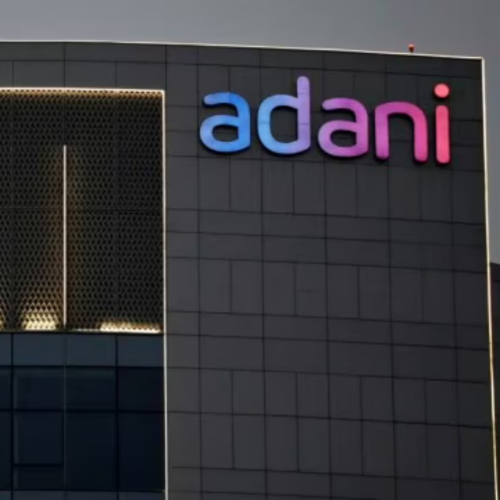A major report by the Wall Street Journal (WSJ) has stirred controversy around Indian billionaire Gautam Adani and his group of companies. The report claims that the United States Justice Department is investigating whether Adani-linked firms illegally imported liquefied petroleum gas (LPG) from Iran into India. These alleged shipments reportedly came through the Mundra Port in Gujarat, which is operated by the Adani Group.
U.S. sanctions strictly prohibit any trade in oil or gas products originating from Iran. The WSJ report said that ships traveling between the Persian Gulf and Mundra Port showed signs of sanction-evasion tactics, such as turning off tracking systems or falsifying routes—techniques that experts say are used by vessels trying to hide connections to sanctioned countries.
The U.S. Justice Department is said to be examining the activity of several LPG tankers that delivered gas to Adani Enterprises. These tankers are suspected of being part of this potentially illegal trade. However, neither the U.S. Department of Justice nor the U.S. Attorney’s Office in Brooklyn has issued an official statement or response regarding the matter so far.
China’s Teapot Refineries on the Brink: U.S.–Iran Oil Deal Could Spark Their Collapse
This investigation comes just months after U.S. authorities indicted Gautam Adani and his nephew, Sagar Adani, in a separate matter. In that case, they were accused of paying bribes to secure power supply contracts and misleading American investors during fundraising efforts. The Adani Group has labeled those accusations as “baseless.”
Adani Group Calls Report Baseless and Harmful
In response to the WSJ article, the Adani Group issued a strong denial. In a public statement and a filing to Indian stock exchanges, the company declared that it “categorically denies any deliberate engagement in sanctions evasion or trade involving Iranian-origin LPG.” The company also said it has received no notice or inquiry from U.S. authorities about such an investigation.
Calling the WSJ article “baseless and mischievous,” the Adani Group argued that the report relied entirely on incorrect assumptions and speculation. It warned that such accusations could seriously damage the company’s reputation and business interests.
Adani Enterprises also noted that its LPG-related operations form a very small part of its overall business—just 1.46% of its total consolidated revenue. The group added that the specific shipment mentioned in the WSJ article was a regular business deal carried out through third-party logistics firms. The shipping documents clearly listed Sohar, a port in Oman, as the point of origin—not Iran.
Secret Deals, Sanctioned Names: U.S. Reveals China-Iran Axis Building Weapons of Mass Destruction
Further distancing itself from the allegations, the Adani Group said it neither owns nor manages any vessels connected to Iranian entities and strictly avoids such associations in all its port operations.
Strict Procedures and Compliance Defended
The Adani Group detailed the procedures it follows in handling LPG imports. The company emphasized that it works only with global logistics and supply firms that meet all international compliance standards. According to its statement, the group carries out thorough due diligence and verifies that none of its suppliers are listed on the U.S. sanctions list maintained by the Office of Foreign Assets Control (OFAC).
Adani Enterprises also said that it signs binding contracts with suppliers, which include strict clauses that the products must not originate from any sanctioned country. The company insisted that all their transactions are transparent and well-documented, showing full compliance with Indian laws and international regulations.
The group concluded that the LPG imports were routine and legitimate, with no evidence linking them to Iran. It reaffirmed its position that any suggestion of sanctions evasion is false and damaging.


